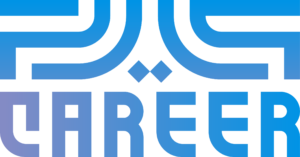
The Power of Coaching: Unlocking Human Potential in the Workplace
In today’s fast-paced business landscape, organizations are constantly seeking ways to boost performance, enhance employee engagement, and drive innovation. While many invest in systems, strategies, and technologies, the real game-changer often lies in a more human-centered approach: coaching.
Coaching is no longer a luxury reserved for top executives. It has evolved into a powerful developmental tool that empowers individuals at all levels to reach their full potential—unlocking performance, clarity, and creativity in the workplace.
What Is Coaching in a Business Context?
Coaching is a structured, goal-focused conversation designed to inspire and maximize a person’s professional and personal potential. Unlike traditional training or mentoring, coaching does not provide direct answers. Instead, it challenges individuals to reflect, discover insights, and take ownership of their growth journey.
A coach’s role is to:
Ask thought-provoking questions,
Provide feedback in a non-judgmental way,
Guide employees in aligning personal goals with organizational objectives,
Foster accountability and follow-through.
The Tangible Benefits of Coaching
1. Improved Performance
Studies show that coaching significantly improves productivity and results. Employees who feel supported are more confident in decision-making, manage time better, and are more proactive in solving problems.
2. Greater Engagement and Motivation
A coaching culture builds trust and open communication. When employees feel heard and valued, their engagement naturally increases—leading to lower turnover rates and higher job satisfaction.
3. Enhanced Leadership Capabilities
Leadership is not just about managing people; it’s about inspiring them. Coaching helps leaders develop self-awareness, emotional intelligence, and a vision-led mindset—qualities essential in today’s agile environment.
4. Better Team Dynamics
Team coaching encourages collaboration, clarity in roles, and a shared commitment to goals. This leads to fewer conflicts, stronger relationships, and improved overall team performance.
Coaching in the Middle East Workplace
Across the GCC and Egypt, coaching is gaining traction in both government and private sectors. Organizations are beginning to realize that to compete in a global economy, they need more than technical skills—they need agile, self-aware, and resilient professionals.
Government-backed leadership programs in Saudi Arabia, the UAE, and Qatar are integrating coaching to foster visionary leaders. Similarly, forward-thinking companies in Egypt are offering coaching to develop future-ready talent, improve employee wellbeing, and create sustainable growth.
Creating a Coaching Culture
To truly unlock the power of coaching, organizations should aim to embed coaching into their culture. Here’s how:
Train managers as coaches to support their teams with daily challenges.
Incorporate coaching into performance reviews and development plans.
Provide access to professional coaches for leadership development.
Promote coaching as a growth tool, not a corrective measure.
Coaching is more than a tool—it’s a mindset. By investing in coaching, organizations can unleash the untapped potential of their people, build a culture of trust and innovation, and prepare for the future with confidence. In a region driven by ambition and transformation, coaching is not just relevant—it’s essential. The leaders and organizations that embrace it will not only thrive but inspire those around them to rise to their highest potential.
Mohamed Badra Tweet
